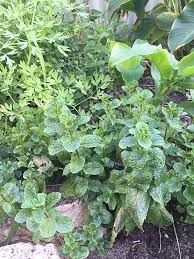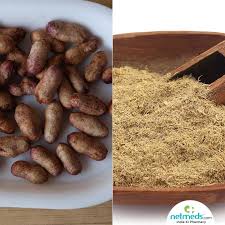Jadi Buti (Ayurvedic herbs) have been an integral part of traditional medicine for thousands of years, revered for their healing properties. These natural remedies offer an alternative approach to health, focusing on holistic well-being and the balance between body, mind, and spirit. In this article, we explore the rich history of Jadi Buti in traditional medicine, their evolution over centuries, and the pivotal role they play in contemporary healing practices.
Long Description:
1. #TheHistory of Jadi Buti in Traditional Medicine
Jadi Buti, or medicinal herbs, have been used for healing purposes for centuries across various cultures, particularly in Ayurveda, Traditional Chinese Medicine (TCM), and Native American healing practices. These herbs were carefully chosen for their ability to address both physical and spiritual ailments, offering a natural, holistic approach to health. Over time, these plants became foundational in the development of traditional medicinal systems, passed down through generations and integrated into healing rituals, treatments, and practices.
In Ayurveda, Jadi Buti are classified based on their effects on the body’s doshas (Vata, Pitta, and Kapha), and each herb is used to balance specific imbalances in the body and mind. Their use in Ayurvedic healing continues to thrive today, with these herbs still being an essential part of wellness regimens.
2. #Prominent Jadi Buti in Traditional Healing
Many Jadi Buti have stood the test of time in traditional healing systems. These include:
#Ashwagandha: This adaptogenic herb has been a key player in Ayurvedic medicine for centuries, used for its stress-relieving properties, ability to increase vitality, and its role in balancing the nervous system.
#Turmeric: Revered in both Ayurvedic and Traditional Chinese Medicine (TCM), turmeric’s active compound, curcumin, is celebrated for its powerful anti-inflammatory properties and its ability to support immune health.
#Brahmi: This herb has been an essential part of Ayurvedic practices for enhancing memory, mental clarity, and reducing anxiety. It is considered a key herb for promoting mental well-being.
#Neem: Known for its antimicrobial and detoxifying properties, Neem has been used in traditional medicine systems for its ability to purify the body, improve skin health, and support immune function.
#HolyBasil (Tulsi): A sacred herb in Ayurveda, Tulsi is used for its anti-inflammatory, antibacterial, and adaptogenic properties, making it essential in treating a variety of ailments and promoting overall wellness.
3. #The Evolution of Jadi Buti Use in Healing
The use of Jadi Buti in traditional medicine systems has evolved as new knowledge has emerged about their chemical composition and medicinal properties. Over time, scientific research has begun to validate many of the claims made in traditional healing practices, and modern medicine has started to incorporate these herbs into mainstream treatments.
In the 20th century, the global rise in interest in natural, holistic, and herbal medicine has led to a revival of Jadi Buti use, especially in countries outside of Asia. These herbs are now widely recognized and used in the form of capsules, powders, teas, and oils, both in traditional and modern wellness practices.
4. #Benefits of Jadi Buti in Traditional Medicine
Jadi Buti offer a wide array of health benefits that support the body’s natural healing process. These include:
- #RestoringBalance: Herbs like Ashwagandha and Brahmi help balance the body’s energy, soothe the mind, and improve mental clarity.
- #Detoxification: Many herbs, such as Neem and Turmeric, help cleanse the body of toxins, purify the blood, and promote better organ function.
- #BoostingImmunity: Holy Basil and Turmeric are known for their immune-boosting properties, supporting the body in warding off infections and illnesses.
- #ImprovingDigestion: Certain herbs like Ginger and Fennel help improve digestion, reduce bloating, and promote gut health.
- #StressRelief: Herbs like Ashwagandha, Tulsi, and Brahmi have adaptogenic properties, which help reduce stress and regulate the body’s stress response.
5. #Modern Use of Jadi Buti in Healthcare
Today, Jadi Buti are still widely used in modern healthcare, both in the form of supplements and incorporated into various wellness products. These herbs are often seen as a natural alternative or complementary option to conventional medicine, especially for people seeking more holistic approaches to wellness. Additionally, with a rising interest in sustainable and natural health practices, Jadi Buti have garnered increasing attention from health-conscious consumers globally.













